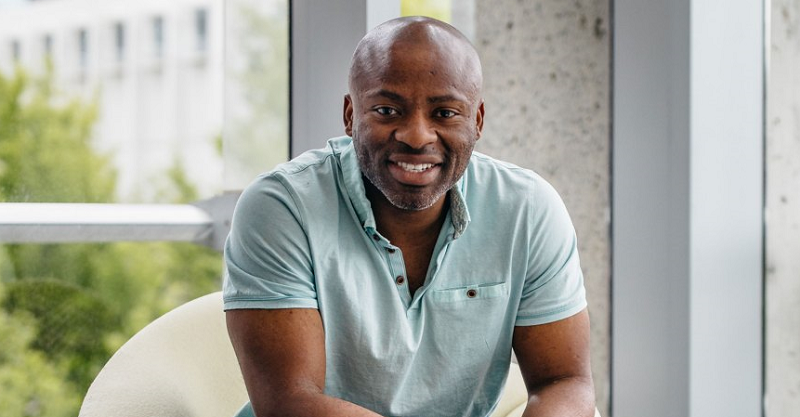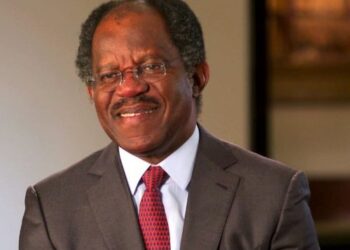“Do not put all your eggs in one basket” – popular proverb.
When Tope Awotona decided to pour all his life savings into his little startup – Calendly – he was taking one of the riskiest financial decisions. He was defying the popular saying. Awotona put all his eggs into one basket, and guarded that basket with all his might. A decade or so later, he has gotten so much returns that we can ‘jokingly’ say that he will never run out of ‘eggs’.
Calendly was founded in 2013, by this young man who could not understand why he had to spend so much time going back and forth on e-mail threads to schedule meetings and remind the parties involved. Tope Awotona was that young man, and after spending hours trying to schedule several meetings on a certain day, he thought to create a solution that would fix it once and for all.
Thanks to his innovation, Calendly now serves millions of users across continents and is worth billions of dollars. Here is a rundown of Awotona’s journey to founding Calendly.
Awotona was born in Lagos, Nigeria, and started his education in Lagos. He lost his father at age 12, and relocated to the United States of America at the age of 15 to continue his education, graduating from the University of Georgia, with a degree in Computer Science.
A new career
Straight out of school, he joined IBM as a sales rep and settled there for the next seven years. The choice to go into sales and business management was born out of a desire for excitement. “I loved coding, but it was too monotonous. I’m probably too extroverted to be a coder” he said. The only way to combine what he studied with what he wanted was to sell software.
Awotona sold software for tech companies, including Perceptive Software, and Vertafore. He also worked with EMC (now Dell EMC) as a sales rep. It was the typical hustle of a young man who was a sales rep by day, and a wannabe entrepreneur by night. Awotona nursed dreams of becoming a famous entrepreneur, so his weekend and after-work hours were spent trying to build several businesses.
First was an attempt to build a dating site. This business was never launched because Awotona realised very early that he had neither the skills nor resources to run such a business. If he was going to build a business, he thought, he would have to make sure he had the required expertise.
His next attempt at entrepreneurship was an e-commerce site selling projectors. He probably thought that being a sales rep, he would be able to hit it big in no time, but it turned out differently and Tope had to close it up. He had no interest in projectors so he could not sell many, and even for the few he sold, the profit margin was lean.
Again, he tried to set up another e-commerce site selling gardening tools but the challenges were similar – few sales and low profits. As you have probably guessed, he had no interest in the tools he was selling as well.
One might say that at this point, Tope was stuck on starting something sales-related since he was already into sales. More like an attempt to stay in his comfort zone and do what came naturally to him. He would later recount that his big break came when he realised that entrepreneurship was not all about making money, but about solving real problems.
He started then to look for a problem that he could solve.
Frustration turned business opportunity
Sales reps conduct a lot of meetings within and outside the organisation, and so Tope found himself constantly having to schedule and follow up meetings via email. The frustration at spending hours on a mundane task was so huge that he decided that his next business idea would be to create a scheduling software. Of course, this time was different. He was genuinely out to solve an actual problem.
“The obvious idea to me was that scheduling is broken. Everyone needs Calendly to lead better, more productive, happier work lives,” Awotona would later say in an interview, explaining how his simple product solved a major problem for a lot of persons.
Awotona saw so much potential in what he was about to do that he quit his job at EMC, poured in all of his life savings, liquidated his 401(k) pension and maxed out his credit cards to raise about $200,000. In retrospect, he says; “With my previous businesses, I hedged my bets a little bit and gave myself a way out. With Calendly I flew into a war zone and put in every cent I had. If you’re going to do something, you have to go all in. It could’ve gone really badly.”
Calendly finally pays off
By late 2013, there was a viable product ready but no cash left. Calendly got a $550,000 seed investment led by Atlanta Ventures. The company became profitable in 2016. In 2021, Calendly took a 350 million investment from OpenView Venture Partners and Iconiq Capital at a price that valued the firm at $3 billion.
David Cummings, founder of Atlanta Ventures described him thus, “Tope could be the most successful African-American tech entrepreneur of his generation”.
Launched from Atlanta Tech Village, a co-working space for entrepreneurs, Calendly has gone fully-remote. Even with other competitors like Square and Microsoft now in the space, Calendly is still holding out his own. The SaaS business now has millions of users across the globe and does annual revenue running over $100 million.
The USP is its sleek, consumer-friendly design and its freemium model that lets it gain paying customers with no marketing. The software now goes as far as routing meetings to the right person at a large company and adding relevant documents, such as agendas and budgets to get the meetings to run smoothly. Calendly is also integrated into other productivity tools like Salesforce.
Tope Awotona ranks number #2076 on the Forbes Lists of Billionaires (2022), and is said to be one of just two Black tech billionaires in the United States.



















